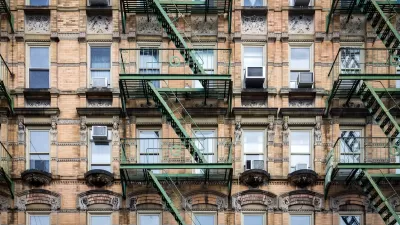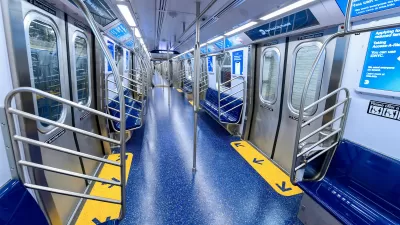NYU has announced its intention to reduce the proposed square footage for their controversial Greenwich Village expansion plan by approximately twenty percent.
New York University's contentious plan for campus expansion in the village will be reduced from 2.3 million square feet to just under 2 million square feet. The plan adds new dorms, classrooms, and commercial space to the two superblocks surrounding Washington Square Park. The university currently owns and operates 7 buildings surrounding the landmark park.
As one of the top 5 employers in New York City, NYU has its share of proponents. However the Greenwhich Village Historic Preservation Society, neighborhood activists, and the community board have all been vocal dissenters against the plan. Opponents argue that NYU's proposed towers are out of scale with the neighborhood's existing building heights and density.
It was for this reason that the Community Board unanimously rejected NYU's initial development plan despite strong support from Mr. Stringer, the Manhattan Borough President who recommended approval to the City Planning Commission on Wednesday. Although NYU's square footage reduction may seem like a compromise, some have argued that NYU overpitched their square footage to have room to negotiate to their ideal range.
Thanks to Elaine Mahoney
FULL STORY: N.Y.U. Agrees to Scale Back Its Expansion in the Village

Planetizen Federal Action Tracker
A weekly monitor of how Trump’s orders and actions are impacting planners and planning in America.

Map: Where Senate Republicans Want to Sell Your Public Lands
For public land advocates, the Senate Republicans’ proposal to sell millions of acres of public land in the West is “the biggest fight of their careers.”

Restaurant Patios Were a Pandemic Win — Why Were They so Hard to Keep?
Social distancing requirements and changes in travel patterns prompted cities to pilot new uses for street and sidewalk space. Then it got complicated.

Platform Pilsner: Vancouver Transit Agency Releases... a Beer?
TransLink will receive a portion of every sale of the four-pack.

Toronto Weighs Cheaper Transit, Parking Hikes for Major Events
Special event rates would take effect during large festivals, sports games and concerts to ‘discourage driving, manage congestion and free up space for transit.”

Berlin to Consider Car-Free Zone Larger Than Manhattan
The area bound by the 22-mile Ringbahn would still allow 12 uses of a private automobile per year per person, and several other exemptions.
Urban Design for Planners 1: Software Tools
This six-course series explores essential urban design concepts using open source software and equips planners with the tools they need to participate fully in the urban design process.
Planning for Universal Design
Learn the tools for implementing Universal Design in planning regulations.
Heyer Gruel & Associates PA
JM Goldson LLC
Custer County Colorado
City of Camden Redevelopment Agency
City of Astoria
Transportation Research & Education Center (TREC) at Portland State University
Camden Redevelopment Agency
City of Claremont
Municipality of Princeton (NJ)





























